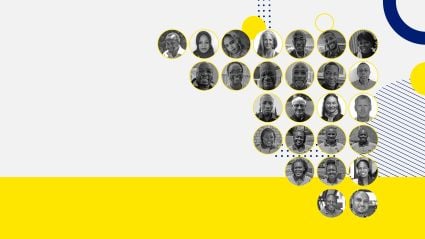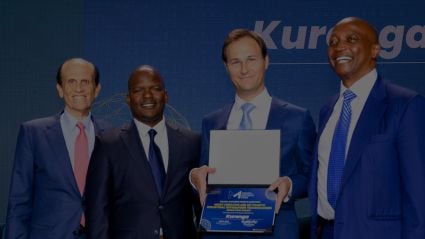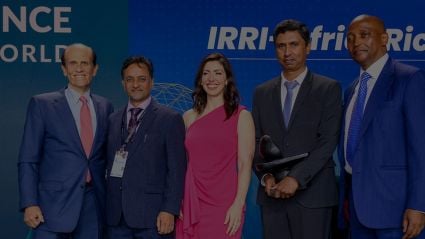
Pictured: Donatus Njoroge.
Milken Institute: Tell us about your team?
Donatus Njoroge: Our core team consists of two multi-award-winning entrepreneurs from Kenya and Nigeria. Donatus Njoroge, the founder, holds a master’s degree in applied analytical chemistry from Kenyatta University in Nairobi, and Mojisola Karigidi holds a PhD in biochemistry from University of Ibadan, Nigeria.
We bring more than 20 years’ combined wealth of experience and an impressive array of dynamic skills and strategic insight in developing products to manage post-harvest losses in Africa. Our team recognizes that to feed the world's exploding population, we must save substantially more of the food that we already produce, but that cannot happen without leveraging cutting-edge technologies.
What inspired you to participate in the Milken-Motsepe Prize in AgriTech? In addition to competing for the $1 million grand prize, what do you hope to gain from this experience?
We were motivated to join the Milken-Motsepe Prize in AgriTech because of our shared focus on accelerating progress towards Sustainable Development Goals 1 and 2. We take pride in getting an opportunity to join other exceptional founders building scalable solutions to increase agricultural productivity and minimize post-harvest losses.
We look forward to benefiting from mentorship and validation, technology support, industry connections, investor access, market development opportunities, conferences, and access to global events.
This is an addition to our several international accolades, including the Global Innovation through Science and Technology 2019 First Prize by the American Association for the Advancement of Science in conjunction with the US Department of State.
In the same year, we won the National Innovation Award in Kenya, the Overall Winner for Biologically-Based Pest Control Technologies by the World Food Preservation Center, USA, and East Africa Post-Harvest Technologies Award by United States Agency for International Development.
How will your concept increase economic value to farmers in Africa?
Molepse BioResources is pioneering novel organic pesticides for grain farmers, to help them reduce the considerable challenge of post-harvest food loss due to weevil attack that currently accounts for more than 40 percent of the annual average grain loss, especially in sub-Saharan Africa. Our company has three products that generate revenue, and the average prices of the product is US$0.6, 30 percent lower than that of existing products in the market.
For a smallholder farmer with a harvest of about 20 bags, about 10-20 percent of that will be lost due to post harvest loss, of which 30-40 percent of this is due to insect infestation (weevils). That is about two bags of maize lost due to weevil infestation. This farmer needs to spend only $0.6 to prevent a loss of $60. Sounds like a good deal, right?
What sets you apart from other teams in this competition?
Growing up in a rural village in the heart of central Kenya, I experienced first-hand the devastation of food insecurity through post-harvest loss and pesticide exposure. I witnessed how much my parents had to toil to make money from selling maize to pay school fees for my siblings and me. Weevils would destroy the grains a few weeks after harvest. The available synthetic pesticides were expensive and ineffective.
Another unfortunate incident shaped my career; I lost a family member to an illness linked to pesticide exposure because he had spent his career spraying crops for an agricultural company. He died at a young age. These childhood memories inspired me to pursue a course that would help me save thousands of families that had suffered a similar fate.
It is while pursuing a master’s degree in analytical chemistry that the lifelong idea of coming up with a solution became a reality. Two years in a research laboratory, I invented the multi-award-winning organic product, and our startup was born!







